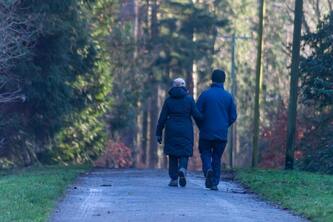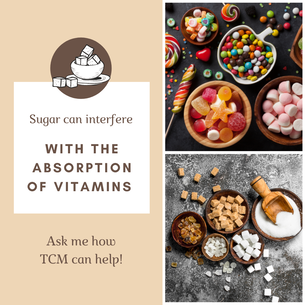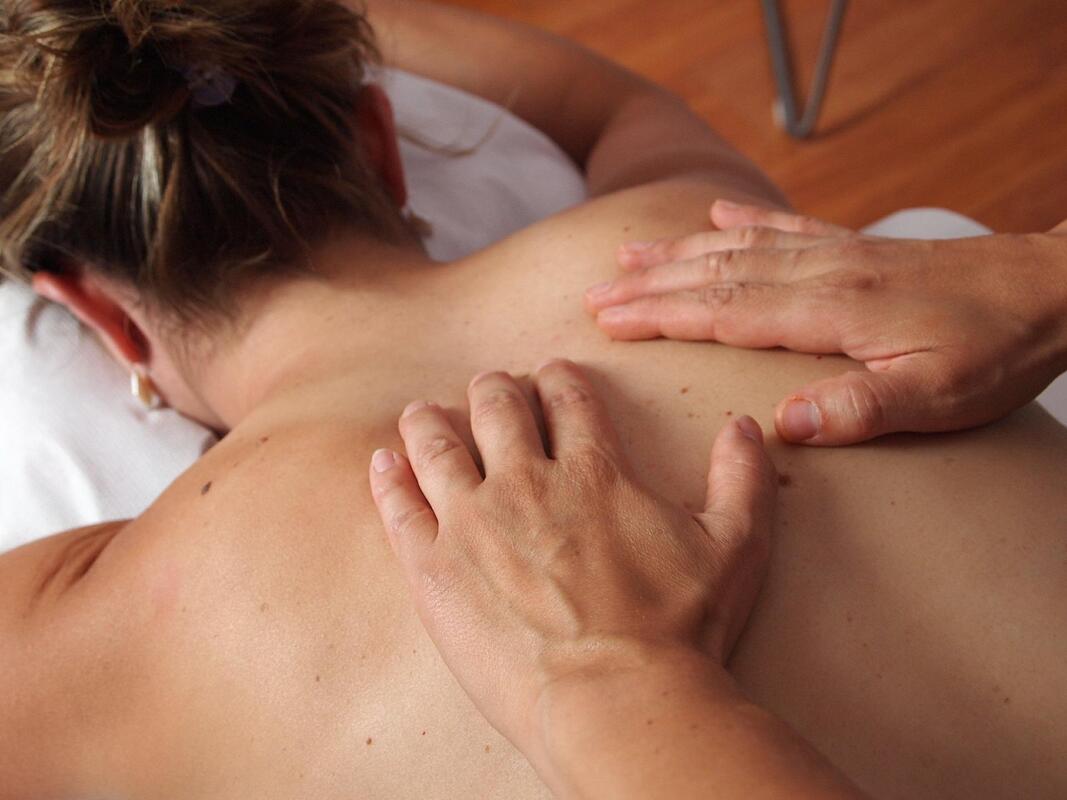 photo courtesy of Unsplash photo courtesy of Unsplash The idea that “people are living longer” is a common refrain, and one that more or less represents a consistent trend over time. The idea that people are living better and longer, however, is a little bit more modern. Only in the past decade or two have we really started to look at the years past middle age as an exciting new chapter, as opposed to a gradual progression into “old age.” As a piece on the Chicago Tribune discussed back in 2010, the consensus seems to be that “60 is the new 40.” It’s a number that once struck people as “senior,” but which now seems merely like another stage of adulthood — and one that can be filled with excitement, opportunity, and new things. For things to work out this way however — to truly live well after the age of 60 — there are some proactive steps one should take both approaching and following the milestone. Take Advantage of Medical Care We’ll start with the most practical aspect of living well after 60, which is taking advantage of available, federal healthcare. Once you turn 65 in particular — and possibly earlier depending on specific conditions — you’re eligible to enroll in Medicare. This program can be set up in different ways with slightly varying coverage, but overall it’s fairly comprehensive care. A handy breakdown of Medicare variations on Kelsey Care Advantage does a nice job of conveying that hospital visits (under Plan A) and outpatient care (under Plan B) are always covered. Versions of Medicare will also help with prescription costs and medical equipment. But the bottom line is, this is affordable healthcare to enroll in once you’re in your mid-60s, and doing so certainly qualifies as a step toward healthy and happy living as you age. Figure Out Your Self-Care Routine Making sure you’re insured for basic medical coverage and health events is vital. It is also important, however, to make sure you have ways of taking care of yourself on more of a day-to-day basis. Indeed, some would argue that establishing a routine to maintain your personal wellness is ultimately the most important aspect of living well as you age. Unlike with Medicare however, there isn’t a sign-up process in this case! Rather, as we conveyed in a post on ‘The Secret to Easy and Affordable Self-Care’, the process is thoroughly individual. It involves everything from finding a nutritious diet you can stick to, to establishing good work/life balance, to finding ways to relax and rest when you need to. But the specific routine is up to you to figure out. Determine Sustainable Exercise Habits In addition to working out a total self-care routine, it’s also in your best interest to establish reliable exercise habits. When you’re young, you can exercise in any number of ways. You may try new sports, take classes, vary your cardio routine, and so on — all because you have the time, energy, and physical health to do so. As you grow older though, you may be at least somewhat more limited in your options. In some cases this can lead people to stop exercising regularly altogether. Naturally though, this is detrimental to wellness! To avoid the problem, it’s important to figure out which exercise habits you enjoy that you can sustain past 60 (when those knees might not quite be what they used to be). Whether that means a walking regimen, hopping on a rowing machine in your basement, or playing golf or tennis a few times a week is up to you. The point ultimately, is finding a long-term, sustainable way to maintain physical condition. Work on Mental Wellbeing Every bit as important as developing habits to maintain physical health is finding ways to ensure mental wellbeing. To some extent, that’s what living well after the age of 60 all comes down to! But here we’re specifically talking about developing ways to keep your mind clear, keep stress at bay, and maintain alertness. It takes time for most people to figure out a routine that accomplishes these goals. Once you do though, you’ll have a means of working on mental health on a daily basis — which can only be good for your long-term wellbeing. Read & Learn Another way to work on mental wellbeing in particular is to develop a habit of reading and learning new things. There is some evidence that such a habit can actually benefit you in a biological sense. Per an article on The Guardian back in 2016, reading books leads to a “survival advantage,” with people who read books for just 30 minutes a day actually living longer on average than those who don’t read. Even setting this evidence aside though, reading can help you to live well as you age. Books represent new knowledge and experience; they keep the mind active; they’re even said to keep memory sharp. All things considered, establishing a reading habit makes for a significant step toward maintaining a strong and capable mind, and living better as a result. All of these tips amount to processes. Make them all part of your routine though, and you’ll be well on your way to developing a lifestyle that will keep you healthy and happy into your 60s and beyond. We hope this has been helpful, and that you’ll continue to come to All Ways Well with your wellness needs! Written by: Amanda Cross  Additive sugar is prevalent throughout modern society’s current food system, the addition of extra sugar is one of the causes of the increase in obesity among children. Coincidentally, the increased rate of obesity in children has led to a rise in the imbibement of sugar-sweetened beverages among them. A study published by The New England Journal of Medicine found children with an increased rate of sugar in their beverage intake led to weight gain. This is due to the fact beverages with added sugar do not reduce the amount of calories taken in from other food and drink. The study found children were more susceptible to overeating and receive a higher calorie intake when drinking the sugar-added beverages, because it did not lead to a feeling of satiation. The study was conducted over an 18-month period, and children participating ranged from four to 11 years old, two experimental groups were created. One group of students received eight ounces of a sugar-free beverage a day during the trial period and the other group received the same amount of a sugar-added beverage. The results found a weight increase of 6.35kg in the sugar-free group and a weight gain of 7.37kg in the sugar-added group. Fat mass and skinfold-thickness among the children in the sugar-added group also increased. As the study shows, try to avoid sugar-additive food and drink within your child’s diet.  The adrenal glands are two tiny glands that sit on top of the kidneys. They are part of the overall endocrine system that produces hormones that regulate the body. The adrenal glands produce three very important hormones, adrenaline, cortisol and aldosterone. Adrenaline, also known as epinephrine, prepares the body to spring into action during stressful or life-threatening situations. Cortisol helps regulate metabolism and assists the body in responding to stress. And aldosterone helps control blood pressure. When the adrenal glands are not functioning properly, many diseases can develop. Adrenal fatigue is becoming increasingly common in the United States, despite the fact that most conventional doctors claim there is no such thing. However, excessive and chronic stress can indeed deplete the adrenal glands over time. Even though most Western medical doctors deny adrenal fatigue is a real diagnosis, it is impossible to deny stress plays a factor in how our bodies thrive and survive. Chronic stress can have serious health implications. Stress causes the adrenal glands to produce excess cortisol and adrenaline, which puts these glands in a constant state of “fight or flight.” This can lead to symptoms such as poor sleep, weight gain, digestive issues and chronic illnesses. Cortisol normally helps the body convert food into energy, while keeping the mind alert and reducing inflammation. This is why many people who are diagnosed with fibromyalgia are probably also clinically experiencing adrenal fatigue and chronic stress. Traditional Chinese Medicine (TCM) provides some of the best tools available to battle chronic stress and adrenal fatigue. Acupuncture is one of the tools in the toolbox of the TCM practitioner. Acupuncture uses hair-thin needles to stimulate acupressure points on the body. Studies have shown acupuncture treatments actually turn on or stimulate the relaxation areas of the nervous system, also known as the parasympathetic nervous system. When the parasympathetic nervous system is switched on, it helps to regulate the heart rate, improve digestion and balance sleep cycles. Many people who get regular acupuncture treatments actually fall asleep once the needles have been inserted. Moxibustion is another modality commonly used by TCM practitioners. Moxibustion uses the herb mugwort to boost the functions of the adrenal glands and balance hormones. Crushed mugwort is placed on various acupressure points and then lit on fire. There are barriers between the herb and the body to prevent any actual scarring. Over time, moxibustion can help with many of the symptoms experienced by those suffering from adrenal imbalances. In TCM, the adrenal glands are frequently included or related to the functions of the kidneys. Therefore, many of the points that help balance the adrenal glands are found along the kidney energetic pathways. Thus, by stimulating these acupressure points, the acupuncturist can help regulate the hormones being produced by the adrenal glands. The pericardium energetic pathway also plays a vital role in helping balance the adrenal glands. With all the excess stress placed on humans today, it is quite feasible nearly everybody deals with some sort of hormone imbalance and adrenal gland weakness. But this doesn’t have to be the case. Schedule your TCM evaluation with me today to start your journey to wellness.  There are certain health issues more prevalent in men than women and many of these conditions can be easily addressed or treated using Traditional Chinese Medicine (TCM). Afflictions such as high blood pressure, depression, urinary issues, stress and prostate problems are just a few of the issues that are frequently seen in men. And these issues, along with many others, respond very favorably to acupuncture, a modality of TCM dating back thousands of years. Without purposely trying to cause a debate between the sexes, it is statistically shown that men are less likely to seek help when experiencing physical or emotional unease. This is where something like acupuncture, a safe, natural and side-effect free modality of TCM can be a great asset for men of all ages. Acupuncture can calm the mind, the nervous system and the endocrine system. All of these things work in conjunction to keep the body functioning properly. However, in the world we currently live in, stress, anxiety and depression have become rampant. Specific acupuncture points can literally decrease the heart rate, slow breathing and relax the mind in a matter of seconds to minutes. This helps alleviate the added stress that men, in particular, feel on a daily basis. TCM has a long history of being used to help with fertility issues and sexual vitality. As men age and life takes over, many men experience a lack of libido and decreased sexual function. Improperly balanced hormones affected by long hours at the office, improper diet and lack of sleep can all lead to sexual dysfunction and fertility problems. Simple Acupressure Routine for Men’s Health Yin Tang: This point is located midway between the inner ends of the eyebrows. Yin Tang is used to treat stress, anxiety and insomnia. It is also a great point to use for eye issues, nasal problems and headaches. Heart 7 (HT-7): This point is located on the underside of the wrist crease on the outer edge. It is found in the depression on the outer side of the tendon. In Traditional Chinese Medicine, this point is used to calm the mind and heart. It works well for anxiety, stress and anger too. Kidney 3 (KD-3): Located in the depression between the tip of the medial malleolus and the Achilles tendon. This point tonifies the kidneys, while strengthening the lower back and knees. Stomach 36 (ST-36): Known as the Longevity Point, this point is located bilaterally on the lower outer leg. It can be found 1 finger-breadth from the border of the upper tibia and about 3 thumb-breadths below the lower border of the knee cap. This point boosts the energy of the body and stimulates the immune function. Liver 3 (LV-3): This point is located on the top of the foot in the depression between the big toe and the second toe, where the metatarsal bones meet. Stimulating this point helps stagnant blood to move freely again. In Chinese medicine theory, stagnant blood flow can lead to depression. LV-3 is used frequently in traditional Chinese medicine treatments to reestablish the flow of blood throughout the body. This just touches the tip of the iceberg when it comes to men’s health. But it is easy to see why choosing acupuncture to help keep the body in alignment is a great option, especially for men.  As the seasons change, so does the type of energy that influences the earth. Chinese medicine explains the cycle of the different aspects of the universal energy, or Qi (pronounced “chee”), in terms of 5 elements. These 5 elements are Fire, Earth, Metal, Water and Wood. Each element is associated with a season and a personality-type that embodies the energy of that element. The Elements and their associated season and archetype are: Fire: Summer / The Wizard Earth: Late Summer or the Transitional Time Between Seasons/ The Peacemaker Metal: Fall / The Alchemist Water: Winter / The Philosopher Wood: Spring / The Pioneer As we continue into summer, the season of the fire element, notice how the energy on earth gets brighter, more expressive. It naturally gets hotter, thanks to the proximity of the great fire in the sky, and it draws people outside and together. There is a sense of vibrancy that is awakened in us during this time. The Wizard is the embodiment of this energy: colorful, enchanting, expressive, full of enthusiasm and an appetite for life. She is a magnetic speaker. He is an enchanting leader who leads from the heart. They are teachers, visionaries, and they possess magic. Are you a wizard? Here are some questions to help answer that... ● Do you believe in Magic? ● Do you consider yourself intuitive? ● Are you a natural leader? ● Do you love to engage an audience (or a few friends)? ● Do you wear your heart on your sleeve? ● Do you crave intimacy and passion? ● Are you energetic/playful? ● Do others sometimes have difficulty keeping up with you? If you answered yes to any of these, you have at least a little wizard in you. We all have some features of each elemental energy, some more than others. If you answered yes to all of these, you’re a bright fiery wizard! As it is the central philosophical foundation of Chinese Medicine, the importance of balance can never be understated. A fire can provide comfort and warmth or it can be disastrous and destructive. Signs of a fire burning too strong are excess perspiration, inability to rest, excessive talking, fast heartbeat, high blood pressure, red face, rashes, cramps, issues with blood circulation and even the actual enlargement of the heart organ itself from overexertion. If this excess fire is not kept in check, it will inevitably lead to burn-out and a complete reversal of what we know to be associated with fire. Signs of a burnt-out wizard are someone that is nervous and withdrawn, or easily startled. The unregulated desire to share oneself can lead to a loss of boundaries, which can lead to a loss of self. The beautiful fire of creativity and expression can thus turn into ashes of desolation and voicelessness. We can think of someone like Robin Williams as an example of a wizard who experienced both extremes of the fire-type personality. He shared his powerful magic with the world but also suffered from depression and isolation. Some general but important reminders to help keep your fire in balance: ● Celebrate your inner wizard! Allow yourself time for the pursuit of pleasure. ● Stay hydrated, avoid overindulging in spicy foods and stimulants. ● Avoid over-excitement and over-exertion, Make time for rest and solitude. ● Maintain appropriate physical, emotional and spiritual boundaries. ● Cultivate a peaceful spirit, tranquil mind, and harmonious heart. (Meditation is a great cultivation tool.)  First things first, among adults over 65 years old Alzheimer’s is the disease that is found to cause most cases of dementia. Whereas Dementia is the actual loss of cognitive function so severe it interferes with daily life. Dementia ranges in severity from the loss of memory, ability to think, reason, plan and can even interfere with basic problem solving. Officially, Alzheimer’s disease is the sixth leading cause of death in the United States. However, recent estimates show the disease ranks closer to third as a cause of death among older adults, just behind cancer and heart disease. While Alzheimer’s disease and related Dementias are more common among aging adults, it is not a normal part of the aging process. Alzheimers is a progressive and irreversible disease that slowly destroys not only long term memory, but can disturb basic cognitive function as well. Often those suffering from Alzheimers eventually lose the inability to carry out everyday tasks, and therefore are rendered completely dependent on the help of others. Studies are showing acupuncture can help improve the lives of those who are suffering from Alzheimer’s in a variety of ways. CUHK Research Indicates Acupuncture can Improve Cognitive Functions of Elderly The Chinese University of Hong Kong provides us with research on the beneficial effects of acupuncture in adults over 65. Acupuncture can help improve the cognitive functions of adults 65-79 who suffer from Mild Cognitive Impairment (MCI). And while not threatening in and of itself, MCI has been known to lead to early onset Dementia. While the pilot study was done using a small subject base the findings were conclusive enough to lead to further testing with a much larger test group. One of the lead researchers on the experiment, Professor Albert Leung, said “We are delighted to see that acupuncture treatments help improve the cognitive functions of the elderly. We shall further ascertain its efficacy through our pilot clinical research project.” Acupuncture Has Long Been Used to Fight Anxiety and Depression With the loss of cognitive function, so too comes the loss of independence. Displaced feelings of overall fear, loss, and helplessness are not uncommon. These emotions can become so burdensome they may manifest into depression and/or anxiety. One study in particular from Wellesley College evaluated participants who were receiving acupuncture treatments 2-3 times per week for three months. This study was able to conclude that regular acupuncture treatments alone can improve mood and energy among this demographic. For thousands of years Acupuncture has been an effective treatment for symptoms of mental illness and stress. However until relatively recently there was insufficient scientific evidence to make these claims concretely. But a 2013 study performed by Chinese researchers uncovered preliminary evidence to suggest the scientific reasons acupuncture acts like a natural antidepressant. Since the initial experiments on rats with induced depressive activity further research has come out to substantiate these claims. With Alzheimer’s and related Dementias becoming an increasingly serious problem for today’s elders it’s certainly worth investigating the options for its prevention. And with more research being done after promising early results, acupuncture should definitely be taken into consideration to offset these diseases. Acupuncture is safe, natural and side-effect free. Ask me for more information. Sources http://www.acupuncture-online.com/alzheimers.htm https://www.ingentaconnect.com/content/cog/aetr/2008/00000033/F0020001/art00002 http://www.healthcanal.com/alternative-therapies/46963-cuhk-research-indicates-acupuncture-can-improve-cognitive-functions-of-elderly.html http://www.healthcmi.com/Acupuncture-Continuing-Education-News/1244-acupuncturebraincellgb34du20 http://www.ncbi.nlm.nih.gov/pmc/articles/PMC3813990/ |
AuthorsRebecca M H Kitzerow is a Licensed Acupuncturist practicing in La Center, Washington. With over a decade of experience she has won 10 Nattie consumer choice awards from Natural Awakenings Magazine since 2014. Archives
July 2024
Categories
All
|
Photos from Hey Paul Studios, BeGreen_Studio, Pawel Pacholec, 1950sUnlimited, toulupaliaqaz, Joelk75, OnTask, Robert Gourley, cnu_sports, Mitya Ku, wuestenigel (CC BY 2.0), FootMassagez, 401(K) 2013, Mariana Heinz, @EdwardTerry, fishhawk, liverpoolhls, torbakhopper, Boemski, dolomitibl, Driscolltheque, Dave n Laura, Vaping360, MVWorks, Life Mental Health, MVWorks, mikefats, Scot Nelson, jfl1066, wZa HK, ruurmo, Guadalupe Cervilla, Army Medicine, GViciano, torbakhopper, adrigu, Saulo Cruz, Ben Cumming, marniejoyce, kcxd, JasonCorey, kanenas.net, Live to Create Photography, gm.esthermax, Unique Hotels Group, Zenspa1, mysiana, Tobias Lindman, Leader Nancy Pelosi, Kristoffer Trolle, swanksalot, Bill Selak, Parker Knight, stimpsonjake, Gedankensprudler, SuperFantastic, tonynetone, marniejoyce, JeepersMedia, Illusive Photography, 'Ajnagraphy', Iban Torras, scotted400, gtall1, dvanzuijlekom, BPPrice, Skley, torbakhopper, Renato Ganoza, anka.albrecht, QUOI Media, Public Domain Photos, Instant Vantage, Victor Tongdee, Free Grunge Textures - www.freestock.ca, sportEX journals, Nadja Tatar, angela n., marniejoyce, MVWorks, Karolina Kabat, Thomas Fisher Rare Book Library, UofT, ginnerobot, tracilawson, haven't the slightest, My Photo Journeys, Pierre Willemin, Florena_Presse, SuperFantastic, colindunn, zzkt, TraumaAndDissociation, ER24 EMS (Pty) Ltd., shixart1985 (CC BY 2.0), marniejoyce, Tomás Fano, freestock.ca ♡ dare to share beauty, Archives New Zealand, Jaykhuang, airdrie.m, Go-tea 郭天, OnTask, wuestenigel, focusonmore.com, Disney | ABC Television Group, Andrew Gustar, Didriks, ConstructionDealMkting, charlywkarl, barnimages.com, Lel4nd, runwaypilates, michaelstephanfotografie, McLevn, TraumaAndDissociation, eLife - the journal, Lars Plougmann, wuestenigel, shixart1985, boviate, davis.steve32, kevin dooley, @the.photoguy (insta), frederic.gombert, Feathering the Nest, Victor Tondee, shixart1985, wuestenigel, Joe K Gage, kennethkonica
 RSS Feed
RSS Feed
